Health Care > QUESTIONS & ANSWERS > Halter: Varcarolis’s Canadian Psychiatric Mental Health Nursing, 2nd Edition (All)
Halter: Varcarolis’s Canadian Psychiatric Mental Health Nursing, 2nd Edition
Document Content and Description Below
1. A staff nurse completes orientation to a psychiatric unit. Which of the following would the nurse expect as an advanced practice intervention? a. Conduct mental health assessments b. Prescribe p... sychotropic medication c. Establish therapeutic relationships d. Individualize nursing care plans ANS: B Prescriptive privileges are granted to master’s-prepared nurse practitioners who have taken special courses on prescribing medication; thus it is an advanced-practice intervention. The nurse prepared at the basic level is permitted to perform mental health assessments, establish relationships, and provide individualized care planning. DIF: Cognitive Level: Understand (Comprehension) TOP: Nursing Process: Implementation MSC: Client Needs: Safe Effective Care Environment 2. When a nursing student expresses concerns about how mental health nurses “lose all their nursing skills,” which of the following is the best response by the mental health nurse? a. “Psychiatric nurses practise in safer environments than other specialties. Nurse-topatient ratios must be better because of the nature of the patients’ problems.” b. “Psychiatric nurses use complex communication skills as well as critical thinking to solve multidimensional problems. I am challenged by those situations.” c. “That’s a misconception. Psychiatric nurses frequently use high-technology monitoring equipment and manage complex intravenous therapies.” d. “Psychiatric nurses do not have to deal with as much pain and suffering as medical– surgical nurses do. That appeals to me.” ANS: B The practice of psychiatric nursing requires a different set of skills from medical–surgical nursing, though there is substantial overlap. Two domains relate specifically to psychiatric nursing: behavioural, including communication, coping, and education; and safety, covering crisis and risk management. Basic psychosocial nursing concepts are central to psychiatric nursing practice and increase your competency as a practitioner in all clinical settings. Whatever setting you choose to work in, you will have the opportunity to improve the lives of people who are experiencing mental illness as an additional challenge to their health. Your experience in the mental health nursing rotation can help you gain insight into yourself and greatly increase your insight into the experiences of others. This part of nursing education can provide guidelines for and the opportunity to learn new skills for dealing with a variety of challenging behaviours. Psychosocial pain and suffering are as real as physical pain and suffering. DIF: Cognitive Level: Apply (Application) TOP: Nursing Process: Implementation MSC: Client Needs: Safe Effective Care Environment 3. When a new bill introduced in Parliament reduces funding for care of people with mental illness, a group of people with mild mental illness write letters to their elected representatives in opposition to the legislation for all people with mental illness. Which role does this action portray? a. Recovery b. Self-care c. Advocacy d. Social action ANS: C An advocate defends or asserts another’s cause, particularly when the other person lacks the ability to do that for himself or herself. On a community scale, advocacy includes political activity, public speaking, and publication in the interest of improving the human condition. Since funding is necessary to deliver quality programming for people with mental illness, the letter-writing campaign advocates for the cause for all people with mental illness. DIF: Cognitive Level: Understand (Comprehension) TOP: Nursing Process: Implementation MSC: Client Needs: Safe Effective Care Environment 4. Which of the following has been identified as a significant trend that will affect the future of psychiatric mental health nursing in Canada? a. Decrease in the aging population b. Increase in cultural diversity c. Role of the advanced-practice nurse d. Shortage of physicians in rural and urban areas ANS: B Four significant trends have been identified that will affect the future of psychiatric mental health nursing in Canada; these include an aging population, an increase in cultural diversity, expanding technology, and an increased awareness of the impact of the determinants of health on mental illness. DIF: Cognitive Level: Understand (Comprehension) TOP: Nursing Process: Assessment MSC: Client Needs: Safe Effective Care Environment 5. Which assessment finding most clearly indicates that a patient may be experiencing a mental illness? a. The patient reports occasional sleeplessness and anxiety. b. The patient reports a consistently sad, discouraged, and hopeless mood. c. The patient is able to describe the difference between “as if” and “for real.” d. The patient perceives difficulty making a decision about whether to change jobs. ANS: B The correct response describes a mood alteration, which reflects mental illness. Alterations in cognition, mood, or behaviour that are coupled with significant distress and impaired functioning characterize mental illness. The distracters describe behaviours that are mentally healthy or within the usual scope of human experience. DIF: Cognitive Level: Apply (Application) TOP: Nursing Process: Assessment MSC: Client Needs: Psychosocial Integrity 6. Which finding best indicates that the goal “Demonstrates mentally healthy behaviour” was achieved? a. A patient sees self as capable of achieving ideals and meeting demands. b. A patient behaves without considering the consequences of personal actions. c. A patient aggressively meets own needs without considering the rights of others. d. A patient seeks help from others when assuming responsibility for major areas of own life. ANS: A The correct response describes an adaptive, healthy behaviour. The WHO defines mental health as “a state of well-being in which each individual is able to realize his or her own potential, cope with the normal stresses of life, work productively and fruitfully, and make a contribution to the community” (World Health Organization, 2010). The distracters describe maladaptive behaviours. DIF: Cognitive Level: Apply (Application) TOP: Nursing Process: Evaluation MSC: Client Needs: Psychosocial Integrity 7. A nurse encounters an unfamiliar psychiatric disorder on a new patient’s admission form. Which resource should the nurse consult to determine criteria used to establish this diagnosis? a. International Statistical Classification of Diseases and Related Health Problems (ICD-10) b. Diagnostic and Statistical Manual of Mental Disorders (DSM-5) c. A behavioural health reference manual d. NurseOne online ANS: B The DSM-5 gives the criteria used to diagnose each mental disorder. The distracters may not contain diagnostic criteria for a psychiatric illness. DIF: Cognitive Level: Apply (Application) TOP: Nursing Process: Assessment MSC: Client Needs: Safe Effective Care Environment [Show More]
Last updated: 2 years ago
Preview 1 out of 552 pages

Buy this document to get the full access instantly
Instant Download Access after purchase
Buy NowInstant download
We Accept:

Reviews( 0 )
$8.00
Can't find what you want? Try our AI powered Search
Document information
Connected school, study & course
About the document
Uploaded On
Jan 17, 2023
Number of pages
552
Written in
Additional information
This document has been written for:
Uploaded
Jan 17, 2023
Downloads
0
Views
61


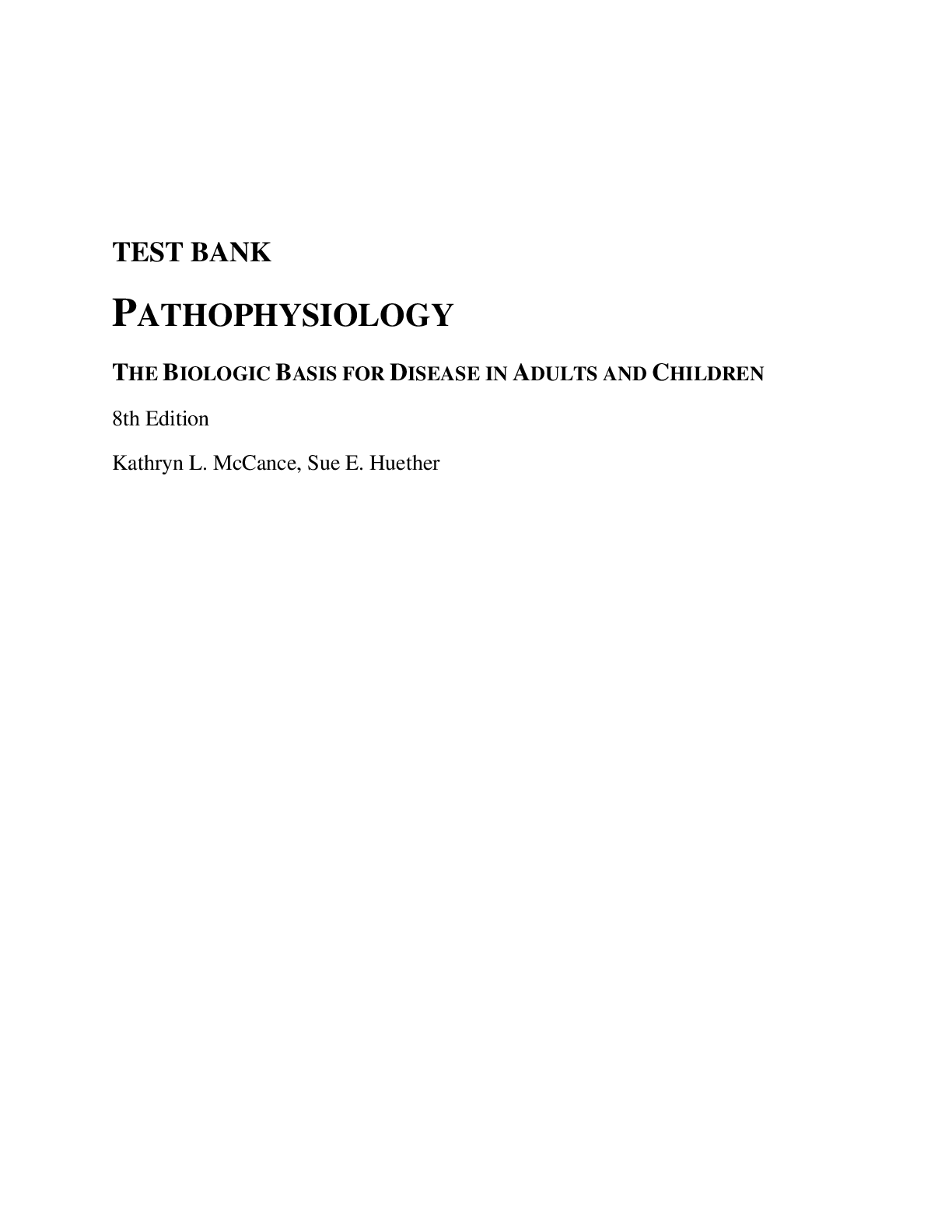

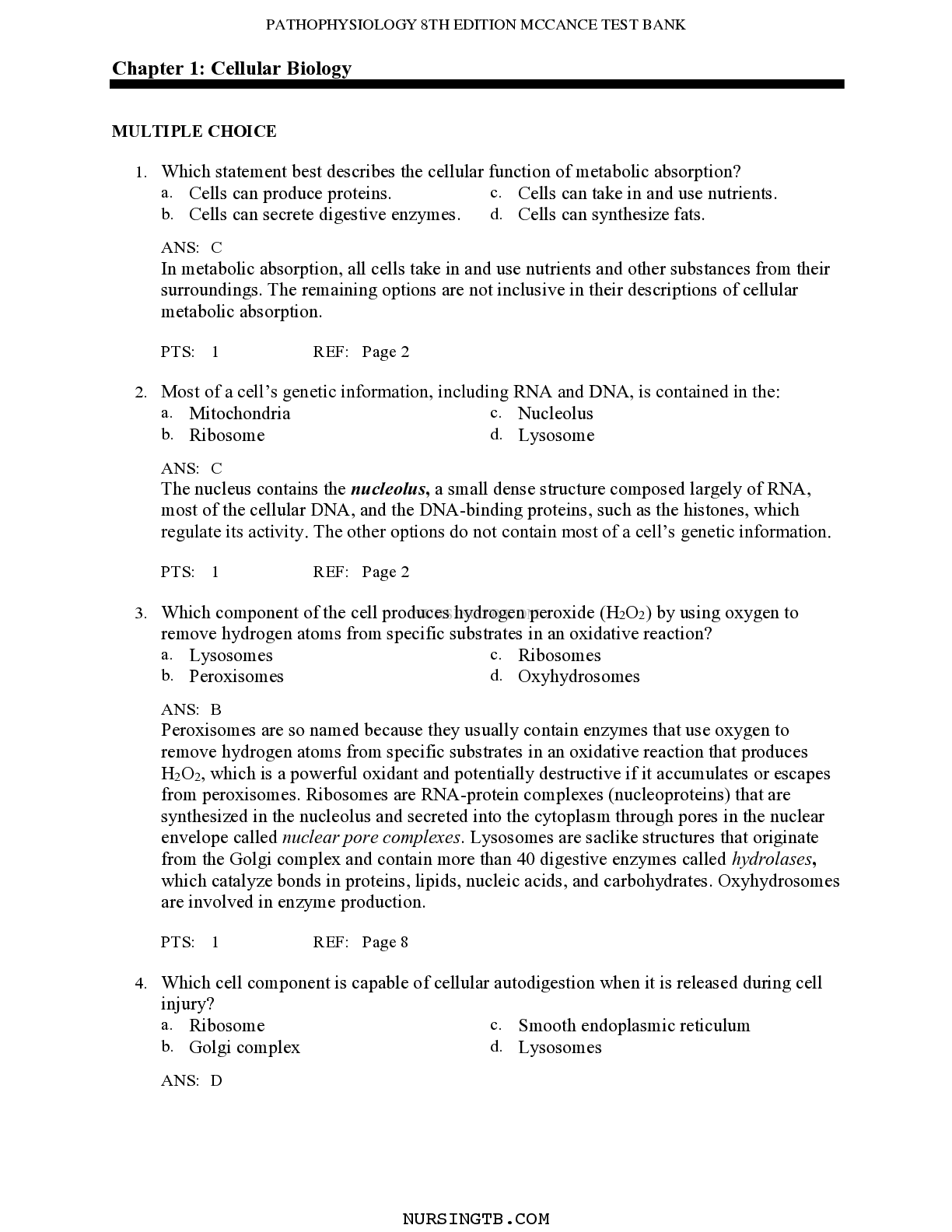
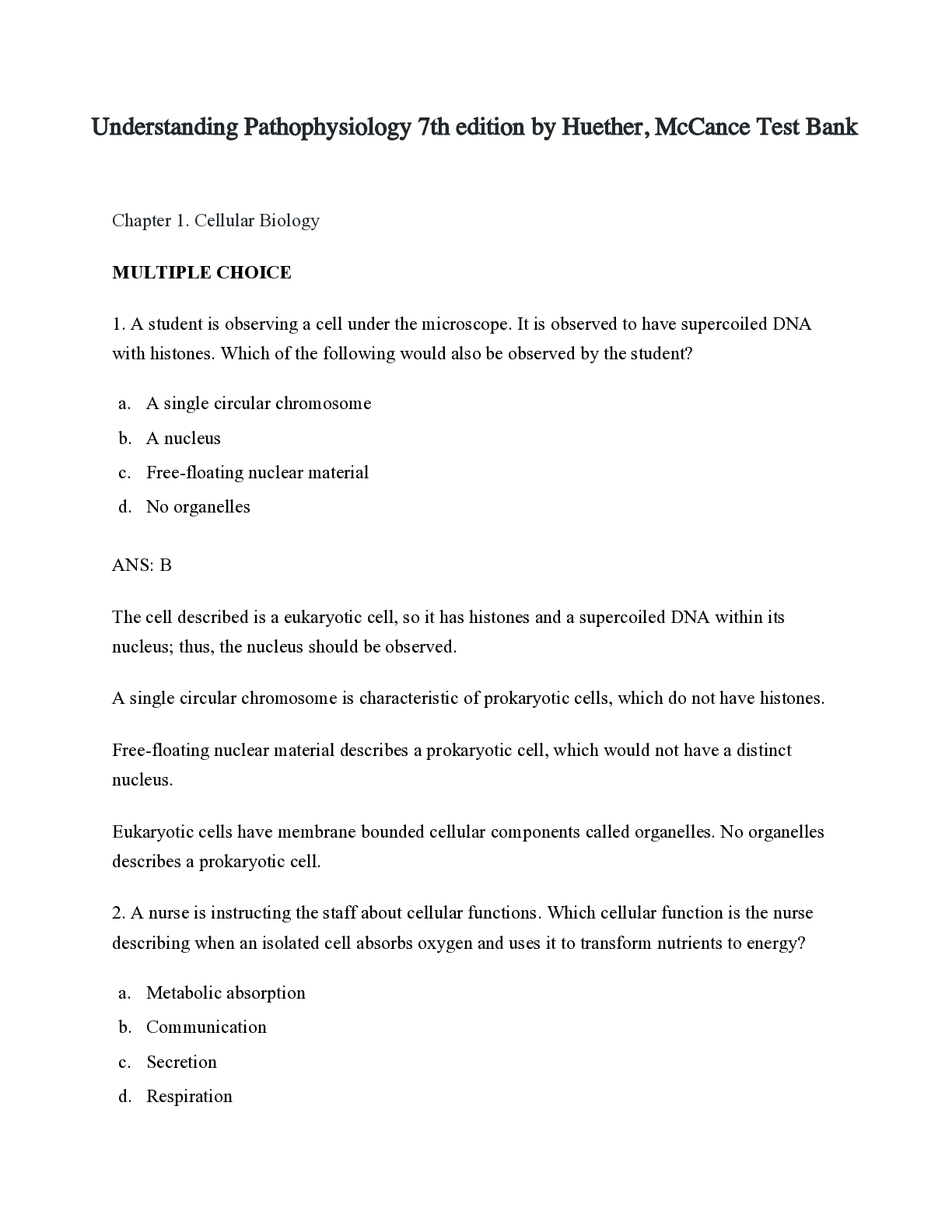
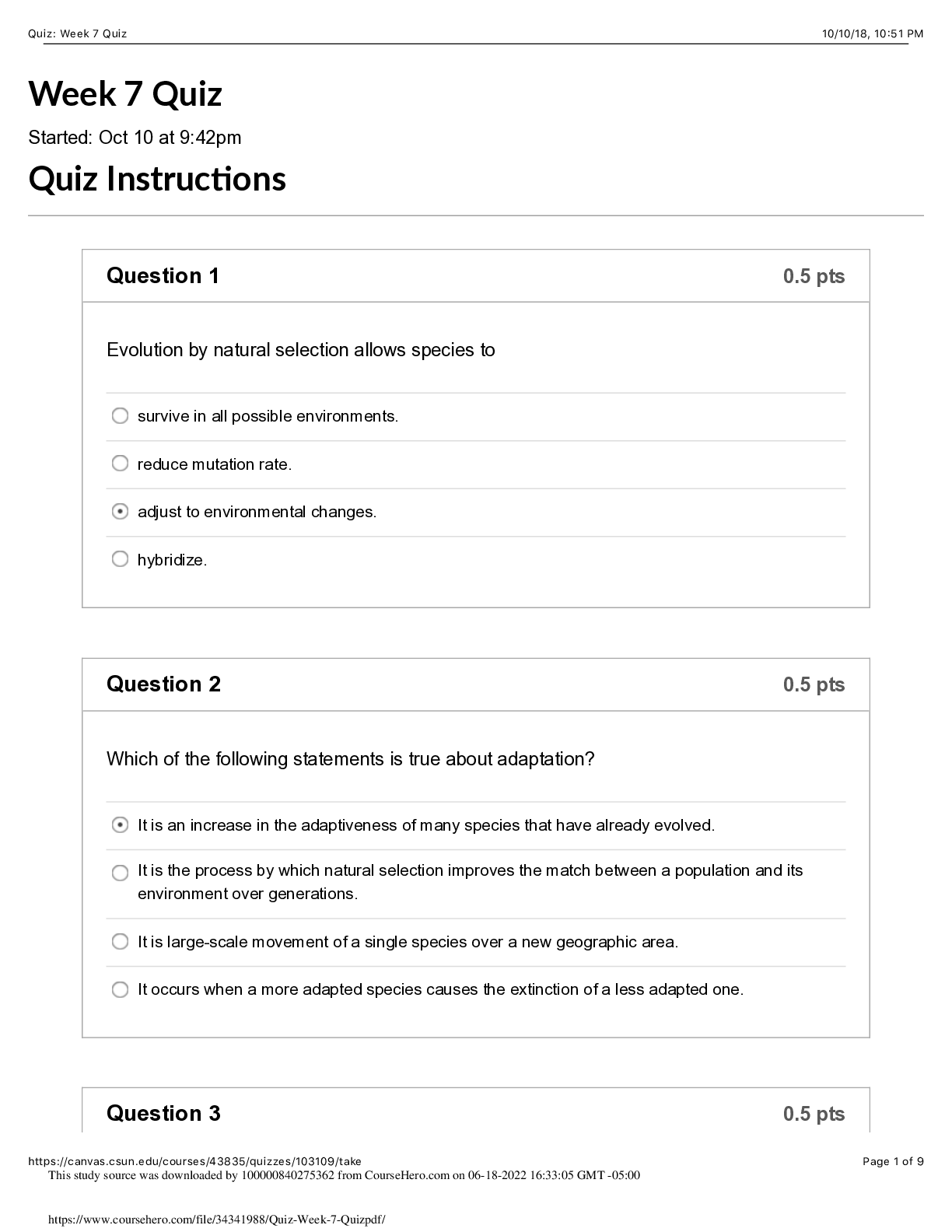
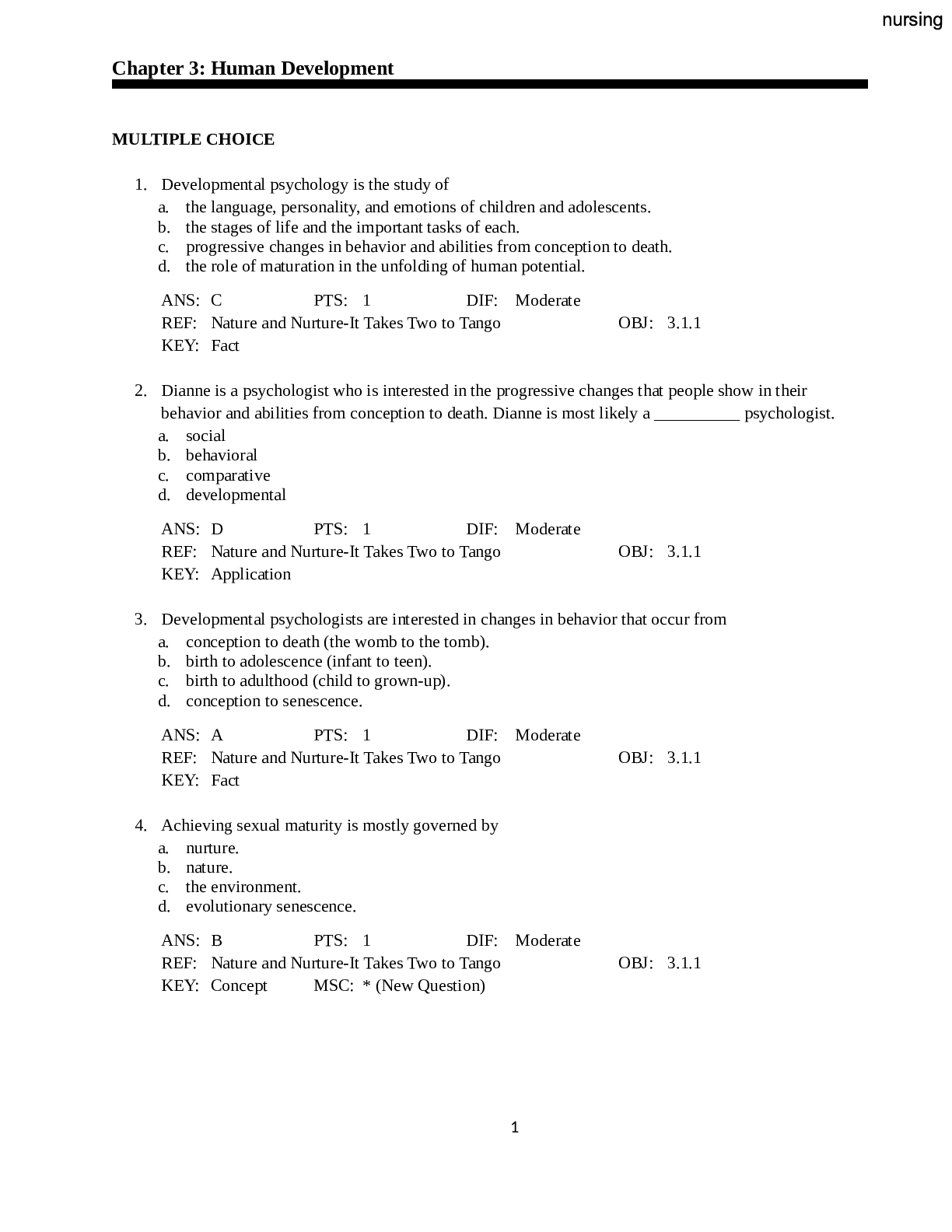

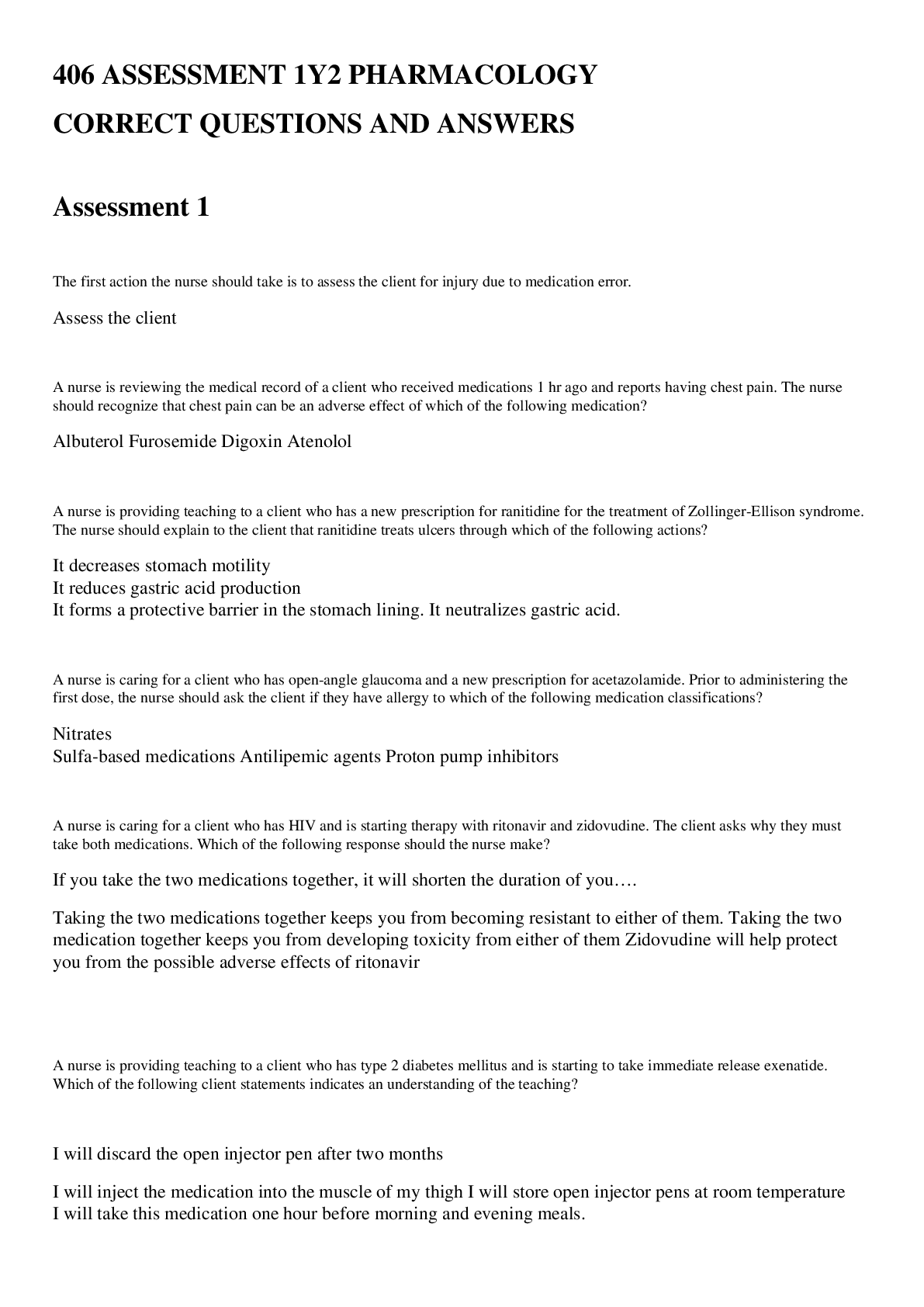
.png)


 Chapter 15_25 Test Preparation Questions with Complete Solutions.png)

